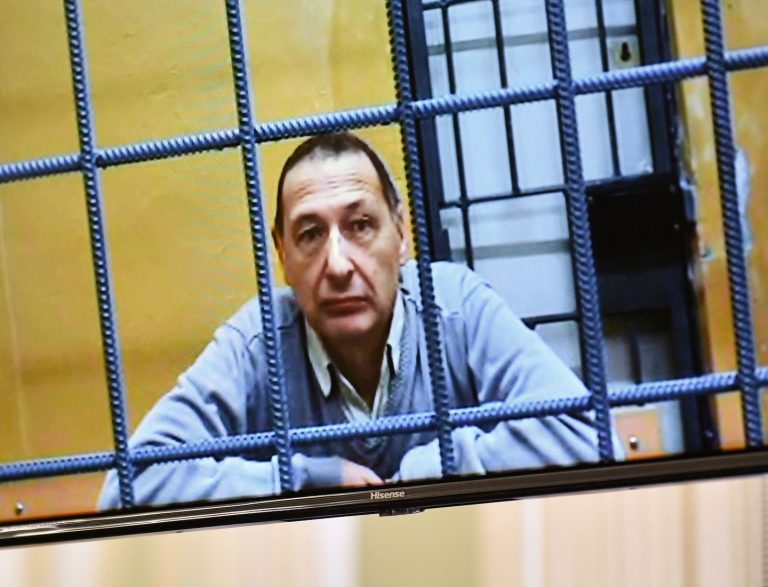Kagarlitsky is the editor-in-chief of the online Marxist magazine Rapkor, and a university professor who has been classified as a foreign agent, a label that Russian authorities have attached to many of those who have criticized the war.
The court's previous ruling, in mid-December, convicted Kagarlitsky of “justifying terrorism” over an online post about the 2022 attack on the Crimean Bridge, but imposed only a fine as a punishment. In many cases, defendants convicted of criticizing the war receive longer prison sentences than those convicted of crimes such as rape or assault.
The Public Prosecution quickly appealed the ruling, deeming it “unfair due to its excessive leniency.”
In the post that led to his arrest, Kagarlytsky said the Crimean bridge had a special symbolic meaning for the “Putin era” and the “meaning” of the Ukrainian attack on it “from a military point of view is rather clear” as before. Russian supplies to the southern part of the front line were disrupted.
On Tuesday, Kagarlitsky said in a post on the Telegram application that he was “in a great mood as usual” after the new ruling was issued, and that he intends to continue collecting material for new books, “including descriptions of life in prison.”
“Anyway, see you soon. I'm sure everything will be very good,” he wrote. “We just need to live a little longer and survive this dark period for our country.”
But others said the punishment was excessive, even in light of the highly repressive atmosphere that now characterizes Russia.
“This ruling is a flagrant violation of ambiguous anti-terrorism legislation, having been used as a weapon to suppress dissent and punish government critics,” said Natalia Zvyagina, Amnesty International's Russia Director. “By targeting Boris Kagarlitsky, a distinguished sociologist known for his critical stance against government policies, the Russian authorities are once again demonstrating their relentless assault on all forms of dissent.”
Moscow has cast a wide net against those who oppose the war in Ukraine. On Tuesday, the Russian authorities sought to expand their scope by adding Estonian Prime Minister Kaja Kallas to the wanted list.
Klass appeared on the registry of persons wanted on criminal charges, although the registry did not specify the charges she faced.
Russian Foreign Ministry spokeswoman Maria Zakharova later explained that Callas should be held accountable for “crimes committed against the memory of the world's liberators from Nazism and fascism,” adding: “This is just the beginning.”
“Russia’s move is not surprising,” Callas said in a press interview. mail On
Kallas has been a consistent supporter of Ukraine, often calling for more military aid to Kiev and tougher sanctions on Moscow. It also called for the removal of memorials to Soviet World War II soldiers in Estonia. Russia considers the desecration or destruction of war memorials a crime under legislation that bans “Nazi rehabilitation.”
Last fall, Kallas came under public pressure after Estonian public broadcaster ERR reported that her husband remained a shareholder in a transport company that was still operating in Russia after the invasion.
Kallas rejected these reports and described them as a “witch hunt” by her political opponents, adding that her husband is not a public figure and cannot be held accountable for his business activities.
Her husband, Arvo Halik, said he had sold his stake and resigned from the company. In November, Callas was re-elected to lead her party, and she continues to push other European countries to continue aid to Ukraine.
Russian forces recently made confirmed advances south of Kremina in the Luhansk region and around Avdiivka in the Donetsk region, according to the Washington-based Institute for the Study of War (ISW).
The two sides have been waging a war of attrition for months, with Russian President Vladimir Putin betting on exhausting Ukraine and exhausting Western support two years after the war. In the West, there are growing concerns about the shortage of soldiers in Ukraine and the exhaustion of stocks of air defense ammunition.

